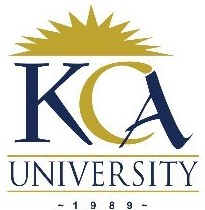
UNIVERSITY EXAMINATIONS: 2014/2015
ORDINARY EXAMINATION FOR THE BACHELOR OF SCIENCE
IN INFORMATION TECHNOLOGY
BIT 4405 EXPERT SYSTEMS DISTANCE LEARNING
DATE: APRIL, 2015 TIME: 2 HOURS
INSTRUCTIONS: Answer Question ONE and any other TWO
QUESTION ONE(30 MARKS)
a) Define the ES development environment and contrast it with the consultation environment. (5 marks)
b) List and define the major components of an ES. (9 marks)
c) What is the role of a knowledge engineer? (2 marks)
d) Describe how expert systems perform inference. (3 marks)
e) What are the major activities performed in the ES blackboard (workplace)?
(3 marks)
f) Describe generic categories of ES applications. (6 marks)
g) Describe an expert system. (2 marks)
QUESTION TWO
a) Describe some of the limitations of ES. (12marks)
b) What is a ready-made (off-the-shelf) ES? (3 marks)
c) What is a real-time ES? (3 marks)
d) What are the benefits of deploying an ES on the Web? (2 marks)
QUESTION THREE
a) Describe the success factors of ES. (10 marks)
b) Given the current status of the Web, discuss how it is changing the availability of ES
and how it is being used to embed expertise in other systems. (5 marks)
c) List the major AI technologies. (5 marks)
QUESTION FOUR
a) Search can be categorized as either:
i) Uninformed (or blind) search
ii) Heuristically informed search
Explain (4 Marks)
b) Using a suitable graphical example, differentiate between depth-first search and
breath-search
(Your answer should include the characteristics of each of the search methods)
(8 Marks)
d) Briefly explain any four-application areas where search technique may be applied.
(8 Marks)
QUESTION FIVE
a) Production systems can be viewed from two different paradigms:
i) Forward chaining inference controls (goal driven)
ii) Backward chaining inference controls (data driven)
Using suitable algorithms, clearly differentiate between the two (Use a suitable
example to illustrate your answer) (10 Marks)
b) With an aid of a diagram explain the operation of components of a expert system
(10 Marks)
